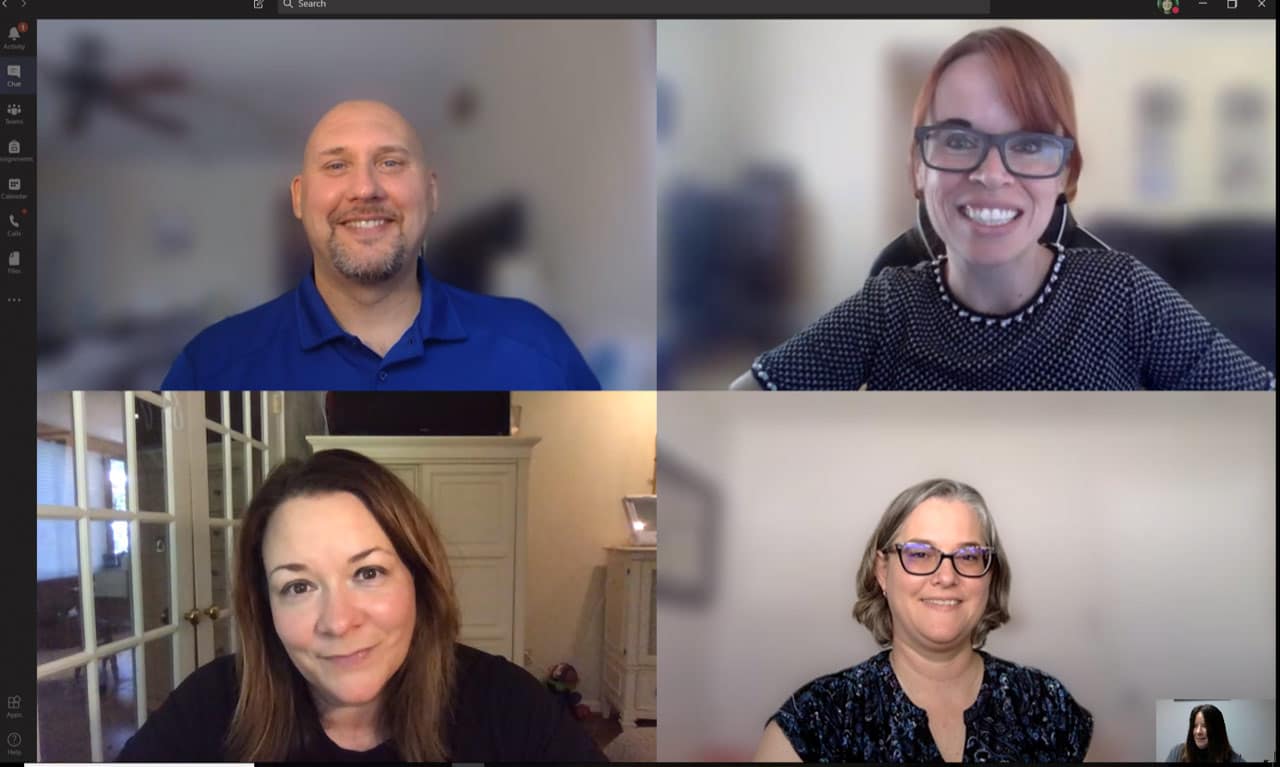Specialized Training Preps Embry-Riddle Faculty to Teach, Adapt During Pandemic

To best navigate a crisis like the Covid-19 pandemic, Embry-Riddle Aeronautical University’s Center for Teaching and Learning Excellence (CTLE) has developed a system that would allow faculty at both of its residential campuses, in Daytona Beach, Florida, and Prescott, Arizona, to easily transition between face-to-face and online teaching while providing a structure to help students learn and thrive.
“Despite the tremendous workload for faculty and the changing circumstances that we seem to be faced with from day to day, I have confidence in our faculty and students and their ability to manage this new reality,” said Lori Mumpower, director of CTLE-Daytona Beach. “Our faculty are laser-focused on preparing successfully, and students are going to see the benefits of this in their classes — no matter what interruptions we face.”
About 300 professors, or 75% of the Daytona Beach Campus faculty, have already taken CTLE’s Pivotal Pedagogy course, which promotes teaching and learning routines that allow rapid switches, or pivots, between face-to-face, hybrid and fully online classes while incorporating evidence-based educational practices, student-over-content focus and clear communication.
According to associate professor of Physical Sciences Muhammad Omer Farooq, the Pivotal Pedagogy course guided him and his colleagues through a process that resulted in a great teaching plan for this fall.
“It was a savior for me,” said Farooq. “When we followed the suggestions of the CTLE members on assignments, what we were doing automatically became an online part of the course that we will be teaching for fall. We made this temporary 'sandbox' in the Canvas environment that we can try, we can amend, we can polish and we can add more structured resources. When we get it completely polished, we can present it to the students.”
CTLE started developing the concept for Pivotal Pedagogy during the California wildfires of 2019, Mumpower said. She, CTLE team member Mike Berta and assistant professor of Meteorology Rob Eicher began discussing a strategy to help faculty manage change in an unpredictable environment — but not a pandemic, per se. When Covid-19 hit and forced Embry-Riddle to suspend face-to-face classes, Dr. Mumpower, together with CTLE team members Claudia Cornejo Happel and Chad Rohrbacher, developed Pivotal Pedagogy in collaboration with Embry-Riddle Instructional Technologist Tracy Parodi.
Professor of Engineering Lisa Davids said Pivotal Pedagogy offered “a wealth of information about how to structure an online course for students’ engagement and comfort, and employs those strategies in the Pivotal Pedagogy course itself, which meant we could experience a well-structured online course for ourselves. It’s truly brilliant.”
Although Embry-Riddle’s upcoming terms are planned to offer students face-to-face instruction, with extensive safety precautions in place, Pivotal Pedagogy offers a guide in the event that a transition to virtual instruction becomes necessary.
On Embry-Riddle's Prescott Campus, CTLE-Prescott Director Dr. Dina M. Battaglia designed an online training institute for faculty to design "flipped courses" that, among other things, emphasizes interactive learning in place of lengthy lectures. The flipped course uses both face-to-face and online teaching modalities.
A newly created Canvas template helps faculty design their flipped courses, identify and implement effective teaching strategies, improve student engagement and provide a strong instructor presence, even from a distance.
"The course gave me ideas on how to better leverage the time I have in the classroom," said Brenda Haven, associate professor of Mechanical Engineering. "The reality that face-to-face meetings with my students in the classroom this Fall will, at best, be cut in half means I need to use the classroom time I have to engage students in the application of material, instead of presenting basic concepts."
One of the main approaches of a flipped classroom is to provide students with basic concepts online prior to face-to-face class time, and then giving them opportunities to apply that knowledge during classroom sessions.
“Dr. Dina Battaglia’s tips on the use of short videos and low-stakes assessments, along with guides to help me better organize course materials, have given me concrete ways I can change my approach to teaching to stay connected to my students during these uncertain times,” Haven added.
For instance, faculty are encouraged to create pared-down online versions of their courses for students to “test-drive” throughout the semester. With most course materials ready for online learning, a professor can then concentrate on clear and regular communication with students if upcoming activities need to be adapted.
“What I found most valuable was the framework created for chunking our classes into weekly modules,” said professor of Electrical and Computer Engineering Timothy Wilson. “If a situation forces us to move back online, we want our students to be able to make that move as seamlessly as possible.”
Clear communication can make the difference between a successful and an unsuccessful transition to online learning, according to the Student Pulse Survey that was conducted by the Embry-Riddle Provost’s Office this spring, Dr. Mumpower said.
“Communication was noted on the Student Pulse Survey as being a crucial component of their experience,” said Mumpower. “When it went well, students thrived. When it didn’t, students felt even more anxious and confused.”
Embry-Riddle Provost Lon Moeller said the Embry-Riddle faculty has “done a tremendous job in responding to the impact of the Covid-19 pandemic on their classroom teaching.”
“These programs, and the work of CTLE, has put the university in a position to effectively make the change to online teaching, if necessary,” Moeller said.

 Michaela Jarvis
Michaela Jarvis